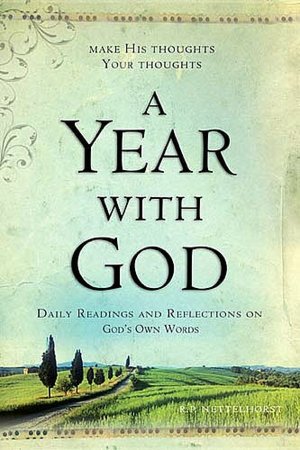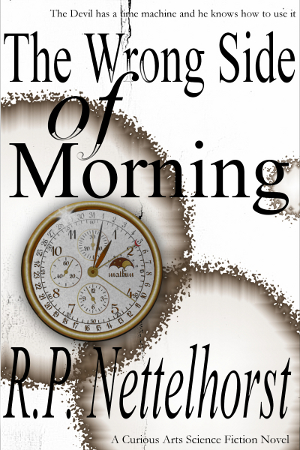My wife is a third grade school teacher. She received her bachelor’s degree in liberal studies and then went for an extra year to get her teaching credential. She goes to conferences, she takes seminars, she takes college classes, and just three years ago she completed her master’s degree in education. She works in a public school and is surrounded by teachers of varying ages, many of whom she has been teaching with ever since she began teaching. And she is surprised by some of them—most of them—who resist every change, who refuse to read any books or journals in their field, who attend no seminars. They do not alter their class room techniques; in fact, they’ve learned nothing at all, changed nothing at all, since they graduated from college—except occasionally their hair style and choice of clothing—though even then, some of them seem stuck in the decade of their college years.
I’ve noticed some of my old friends continue making the same arguments regarding certain points that they first learned in college. In fact, I had the same class they had and heard those same arguments, then. Nothing wrong with remembering what they heard in school. In fact, it’s good that they were listening. But I can’t help wondering how it is that their ideas, their outlook, their ways have developed so little since then.
Benjamin Franklin, at the end of the Constitutional Convention in 1787, told the assembled delegates the following:
“Mr. President, I confess that there are several parts of this constitution which I do not at present approve, but I am not sure I shall never approve them. For having lived long, I have experienced many instances of being obliged by better information or fuller consideration, to change opinions even on important subjects, which I once thought right, but found to be otherwise. It is therefore that the older I grow, the more apt I am to doubt my own judgment, and to pay more respect to the judgment of others. Most men indeed as well as most sects in religion, think themselves in possession of all truth, and that wherever others differ from them it is so far error…But though many private persons think almost as highly of their own infallibility as of that of their sect, few express it so naturally as a certain French lady, who in a dispute with her sister, said, ‘I don’t know how it happens, Sister, but I meet with nobody but myself, that’s always in the right’….In these sentiments, Sir, I agree to this Constitution with all its faults, if they are such.”
I have learned, as Franklin did, that being a human being, there’s a very good chance that I am mistaken about a great many things. I do not, however, like to be mistaken. Therefore, I work constantly at trying to learn more, to make sure I get all the facts, and as I’ve done that, I’ve invariably changed my mind on some things, even as on other things I’ve found that my initial beliefs and thoughts are even more reasonable and right than I had originally thought. But my arguments to support my point of view have shifted to match the new information I have, or to better answer the challenges that I’ve run across over the years. And on occasion, I’ve been forced to completely undo what I thought I knew as some new bit of data forced me to realize that I’d misunderstood everything up to that point.
And I’ve discovered a lot of things that I don’t know and don’t understand. There are still a lot of riddles in the universe. Some people choose to not worry about or think about what they don’t understand. I’m never satisfied with that approach. For some reason I’m convinced that there really is a solution to any puzzle, however hard or intractable it might be. There is an optimism in that, obviously, but it is an optimism learned by repeatedly solving problems that others gave up on.
I simply don’t understand those who are satisfied with what they learned once and never reexamine what they think they believe or know, or never consider the chance that there might be new stuff out there that might make a change of opinion the wisest course. I read two newspapers every day. I read news magazines and online content from multiple philosophical and political points of view. I rehash over and over what I think I know and believe. I read two or three books a week, sometimes more. I am always learning new things as a result. And I know that I don’t believe or think the same things that I did when I graduated from college at the age of twenty-two.
I doubt that the teachers who continue to teach the same material the same way they taught it when they left college twenty years ago are really doing the best by their students—or themselves, for that matter. There’s so much to know and so much that I don’t know yet. Why would I ever want to stop finding stuff out or expanding my horizons? Why would I ever think I know it all or that I am always right? I want to be right. I am just not convinced that I am yet.
 Send to Kindle
Send to Kindle
 A Year With God
A Year With God A Year With Jesus
A Year With Jesus The Bible's Most Fascinating People
The Bible's Most Fascinating People The Bible: A Reader's Guide
The Bible: A Reader's Guide Antediluvian
Antediluvian Inheritance
Inheritance John of the Apocalypse
John of the Apocalypse Somewhere Obscurely
Somewhere Obscurely The Wrong Side of Morning
The Wrong Side of Morning
Excellent post. I wholeheartedly agree with the thoughts of this; though I can’t say I always practice them.